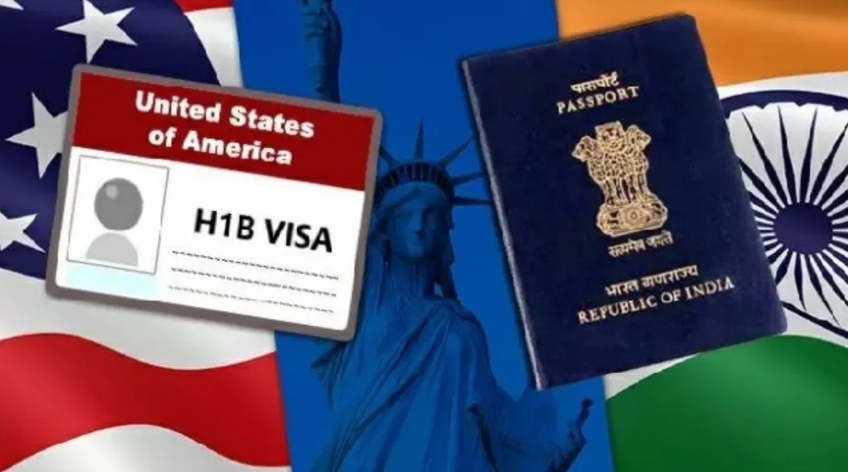The U.S. government’s decision to increase the H-1B visa application fee to $100,000 has sparked widespread concern in India, with experts warning of potential adverse effects on Indian IT professionals and companies. Approximately 70% of all H-1B visa applicants are from India, making the fee hike particularly impactful. Major tech companies, including Microsoft, Amazon, TCS, and Apple, rely heavily on H-1B visas to recruit skilled employees from countries like India, and the new fee structure could significantly raise operational costs.
💥 The United States just hit top tech firms with a potential ₹22,000 crore bill per year for H-1B visas!
Top 20 US & Indian companies could face $2.5B+ in visa costs at $100K/visa (Rs 88 lakh for each applicant) every year.
🇺🇸 Big US names: Amazon, Google, Microsoft, Apple,… pic.twitter.com/VLCxDOkuDB
— Siddharth Zarabi (@szarabi) September 20, 2025
Introduced in 1990, the H-1B visa allows foreign professionals with graduate or postgraduate degrees in STEM fields to work in the U.S. Initially granted for three years, the visa can be extended up to six years. Previously, application costs were limited to a few thousand dollars, usually borne by the sponsoring company. Under the new rules, companies must pay \$100,000 per visa annually, imposing a substantial financial burden, particularly on mid-sized and smaller IT firms.
The fee increase may also reduce employment opportunities for junior-level positions, as sponsoring foreign workers for lower salaries becomes economically unviable. Companies are expected to prioritize highly skilled, senior professionals, limiting options for recent graduates and entry-level IT employees seeking U.S. employment.
Indian IT services firms such as TCS and Infosys, which frequently send engineers to U.S.-based client projects, could face operational challenges due to higher costs, potentially impacting project execution and business continuity.
The Trump administration has defended the move as a measure to protect American jobs, citing misuse of the H-1B program to hire foreign workers at lower wages. While the policy aims to encourage companies to hire domestic talent, it has sparked considerable concern in India’s IT ecosystem. Observers are monitoring the duration of the new regulations and potential legal challenges.






